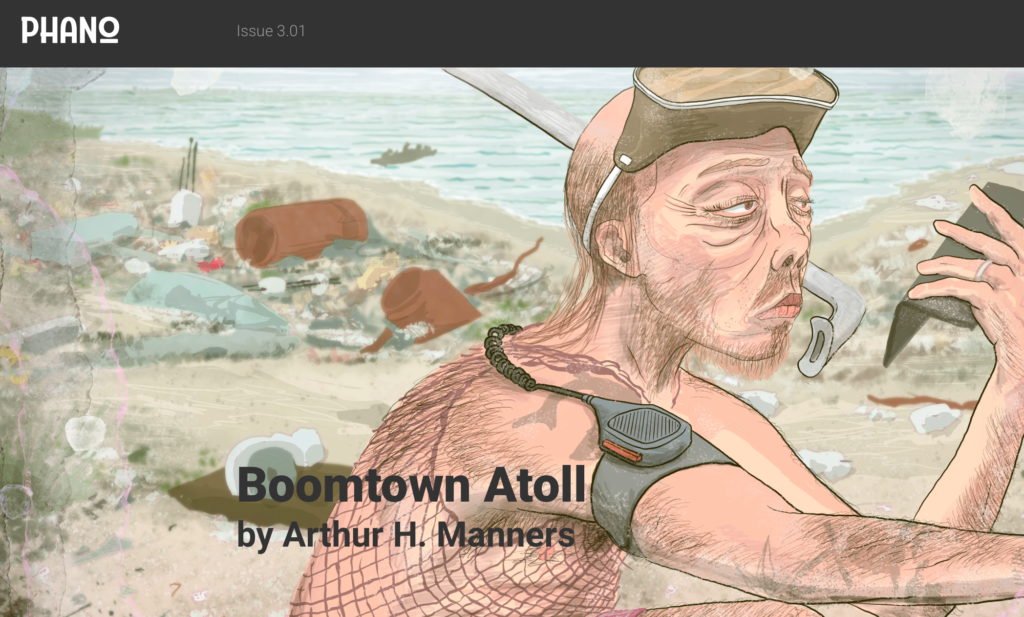I have a really fun supervillain sidekick story “The Discipline of Small Evil” out now in issue #9 of Illustrated Worlds.
Writing
New Story: Boomtown Atoll, published in Phano
My cli-fi (climate fiction) short story “Boomtown Atoll” is now available to read for free in issue #3 of Phano.

Reflection on Discord, Published in The Colored Lens
My fantasy short story “Reflections on Discord” is now published in the Winter 2025 edition of The Colored Lens. “Reflections on Discord” follows Adewale, abused hired-help of an expedition to a mysterious city. Adewale dreams of adventure and being free, but his life of servitude offers no hope for that—until his reflection takes on a life of its own. Grab yourself a copy here.
Read Nelly’s World for Free (Gamut Magazine Archives)
You can now read my sci-fi story “Nelly’s World” for free in Gamut Magazine.
The story was published in issue #11 only a few months ago. Unfortunately, Gamut Magazine has now closed after a single year of excellent issues. But the editors have kindly lowered the paywall, and put the stories into this free-to-read archive.

Ten Thousand Years Walking the Godsroad, published in Trollbreath Magazine
My fantasy story “Ten Thousand Years Walking the Godsroad” is now available in Issue #2 of Trollbreath Magazine. This story follows Harnivel, spin doctor of the gods, as he navigates a sentient magical road to escape imprisonment in the underworld—but the road is long, and the road has plans of its own.
This is a weird story that was great fun to write, and is part of a wider range of stories featuring Harnivel. Hopefully it’s the first of several publications in this line.


